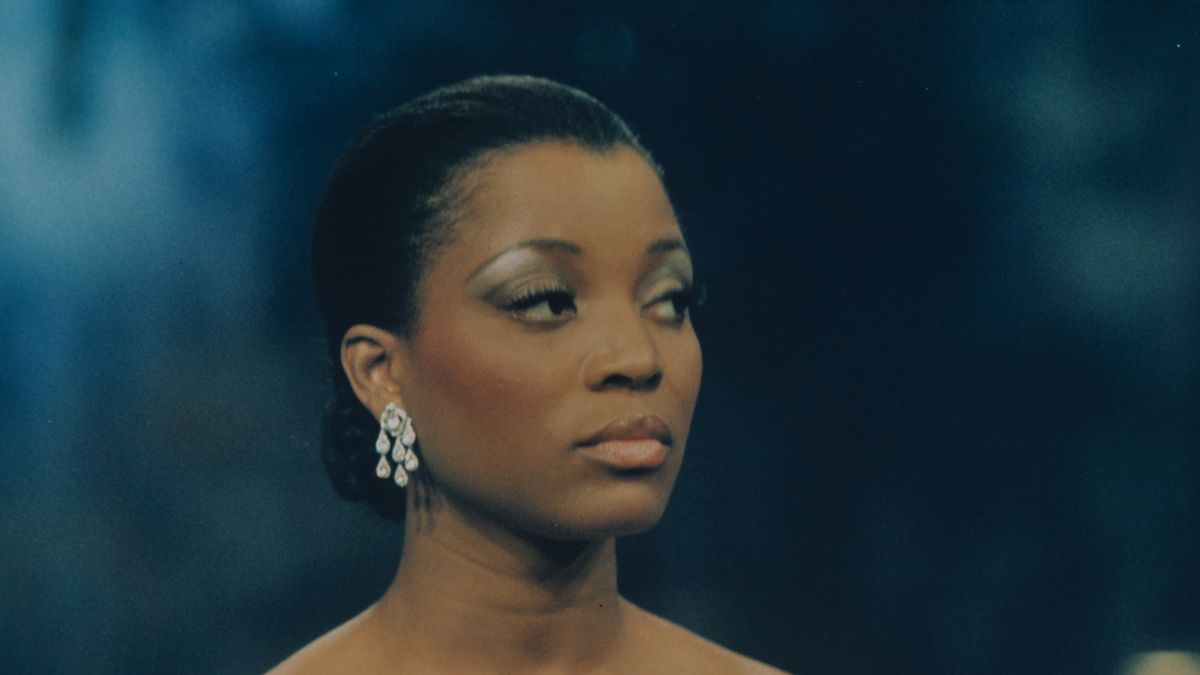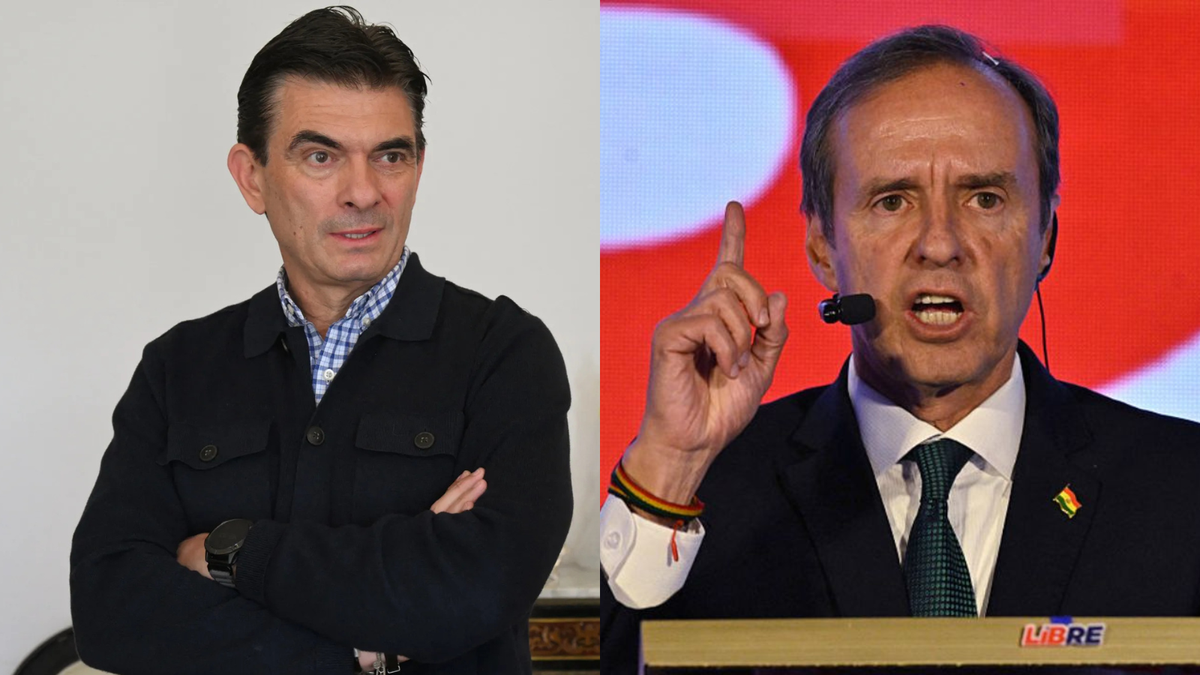News from the United States and Europe report the death, at age 75, of the exquisite American soprano Wilhelmenia Fernandezan artist who, despite her vocal art, was more recognized by film audiences than opera audiences. We Argentines, both movie buffs and music lovers, had the paradoxical luck of meeting her on the occasion of an embarrassing visit to the Buenos Aires Polo Field – an embarrassment of which, let’s say it from the outset, she was completely innocent – and which she will surely have erased from His extensive history of glories barely left Ezeiza. But let’s go in parts.
Wilhelmenia Wiggins Fernandez, her full name, was born in Philadelphia in 1949. African American, her operatic debut came in the role of Bess, in George Gershwin’s classic “Porgy and Bess,” for the Houston Opera, a production with which he toured throughout the United States and some European countries. Her singing and personality seduced the French, and they hired her for the role of Musetta in Puccini’s “La Bohème.” where he performed alongside Plácido Domingo and Kiri Te Kanawa. In 1982, he reprized that role in New York City. As her fame continued to rise she began to tackle new challenges and, years later, He would stand out in London as the protagonist of the musical “Carmen Jones”, the black version of Bizet’s “Carmen” that Otto Preminger had made into a film in 1954..
But the fact that What changed Wilhelmenia’s fame and fortune was that the French film director Jean-Jacques Beineix, the future author of “Betty Blue”, was dazzled by her at the Palais Garnierjust when she was singing the aforementioned “Bohème”, and was offered the leading role in “Diva”, where she performed the aria “Ebben? Ne andrò lontana” from the opera “La Wally”, which launched her to global stardom in 1981.
“Diva” was not just a movie about an opera singer: it was a police officer who departed from tradition not to go of the genre, typical of the 60s and 70s; a stylized and beautiful film, which contrasted the glamorous world of a famous singer and a young postman (a “delivery boy”, one would say today)., played by Frédéric Andrei), a fan of the “diva” who took a pirated recording live in a theater, and who after a mix-up of tapes ended up involved with the mafia. The beauty of the opera in its contrast with the sordidness of the crime was the axis on which the film was built. Some say that its plot was inspired by a real-life episode of Jessye Norman.
The international success of the film and the popularization of the aria (In his career, he was like “Nessun dorma” for Pavarotti: he sang it in theaters and stadiums for almost a quarter of a century) caused Wilhelmenia Fernandez to be summoned by all kinds of businessmen. The serious ones and the others. Let us remember that the 90s, starting with the unexpected impact of the Three Tenors in the Baths of Caracalla in Rome, turned lyrical singers into a kind of rock stars to perform outdoors and before crowds.. Thus, Wilhelmenia, as almost written, ended up singing the lead role in Verdi’s “Aida” in the Pyramids of Luxor, in Egypt, and in other spaces in the United States. To her misfortune, she also signed with a company called Operama, which had presented that outdoor production in Portugal, and which proposed bringing it to the Buenos Aires Polo Field.
Embarrassment for two
The month of December 1997 was not only extremely muggy in Buenos Aires, but it was hit by torrential rains that were attributed to “El Niño”, that phenomenon of tides and the warming of the oceans that has consequences of all kinds. (and which, in that case, were a perfect excuse to blame someone else).
A month before, the advertising billboards in Buenos Aires began to be filled with enormous advertisements for the show, with one particularity: it was not advertised “Aída”, with the spelling that we always give to Giuseppe Verdi’s opera, but “Aïda”, with an umlaut on the “i”. That is to say, a graphic transcription of the impossibility, in Saxon countries, of skipping the diphthong and pronouncing as God and the Royal Academy command. It was a first bad sign: no one told the businessman that Argentines know how to pronounce “Aída”, but that’s how the campaign was launched. But there was something more serious: a good part of the press, including one of the “big” newspapers, also wrote “Aïda”, as if it were another opera.. I wish it had been just that.
Of course, impressive paraphernalia was announced for its staging. The only thing missing was the parade of authentic elephants that some productions of the past dared to put on stage. Now that was not necessary, the era of laser projections had already begun. They anticipated the presence of 700 extras (to represent the Egyptians and Ethiopian slaves), a stage 45 meters wide and 20 meters high divided into three parts, two enormous sound amplification towers, and a screen to project 60 meter sets.. The problems began the night before the debut: following El Niño’s commands, it had rained too much, which turned the inappropriate setting of the Polo Field into a quagmire that was difficult to dry.
The show was announced at 9 p.m. (it was a Friday) and it started… two hours and ten hours later. Many VIP guests left early, among them the then Head of Government Fernando de la Rúa, who logically could not be delayed until dawn. But the most serious thing was the reasons for the delay: the preferential seats, several rows of them, were not numbered, and the spectators who had paid a fortune for them, and who entered the Field very late because the doors were not enabled, started a pitched battle to obtain the best sites. The result was a “stage invasion” by the angry stage performers, very far from what is expected of an opera audience, given the impotence of the security people, who rushed to put up additional chairs as if it were a kermesse.. Of course, something like this is not expected from such an expensive international show. Detail in passing: there weren’t even chemical baths, so you had to make do as best you could in case of emergency. Wilhelmenia had to, under these conditions, play Verdi’s unfortunate slave, in a role that she must not have forgotten in her life. And she wasn’t the worst.
Saturday night was the most “normal”, it only started 40 minutes late. And some imbalances were repeated that led to, the most knowledgeable, assured in public or private that these performances had not had rehearsals. However, the final performance, on Sunday (unfortunately, which the writer of this attended) was a cataclysm.
Because of the Child or not, The almost hurricane-force winds carried away parts of the scenery, even before starting, and caused damage to the already weak amplification systems.. Not to mention the chairs arranged as an audience, which spun like in a surreal film. Until the last minute it was not known whether the performance would be canceled or not because the sky looked threateningly overcast. Despite this, with a not very long delay, the performance began.
It didn’t last too long. Having finished the first painting, that of the tenor’s aria “Celeste Aída”, The first drops began to fall. The musicians (it was the National Symphony Orchestra), naturally, stopped playing to protect their instruments (which the State never provided them and are their own, like those of the rest of the orchestras). Over the loudspeakers, which sounded clearer than the singers’ microphones, it was announced that they were going to wait a bit until the rain stopped, which caused countless laughs despite the dramatic nature of the situation. “Aida” could not be heard. The only thing that came clearly was not Ghislanzoni’s verses set to music by Verdi but the songs of the River fans, who were leaving the Monumental celebrating a three-time championship.. As expected, the rain did not stop but became torrential, and the performance was permanently suspended. Of course, in this case they returned the value of the tickets.
Wilhelmenia Fernandez left with these memories of Buenos Aires. Those who, despite all the adversities, were lucky enough to hear her sing say that she was magnificent. He never came back.
Source: Ambito
I am an author and journalist who has worked in the entertainment industry for over a decade. I currently work as a news editor at a major news website, and my focus is on covering the latest trends in entertainment. I also write occasional pieces for other outlets, and have authored two books about the entertainment industry.




